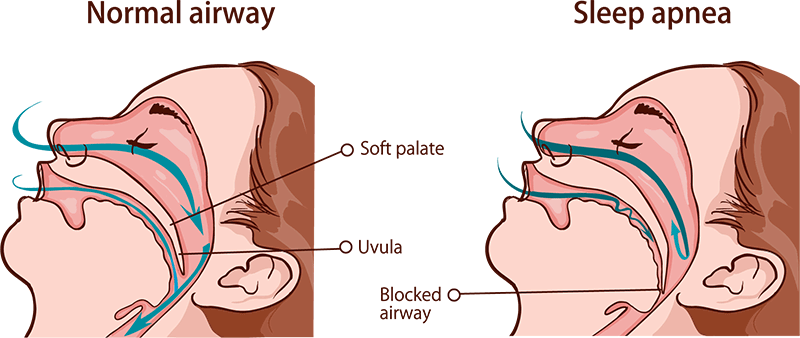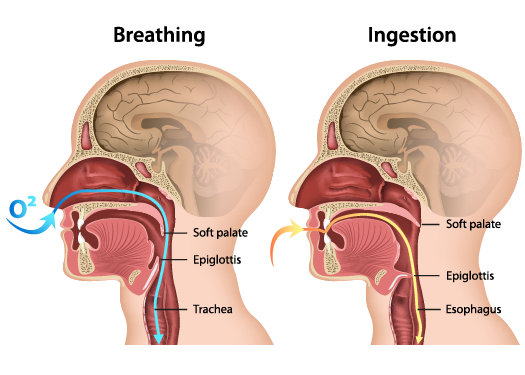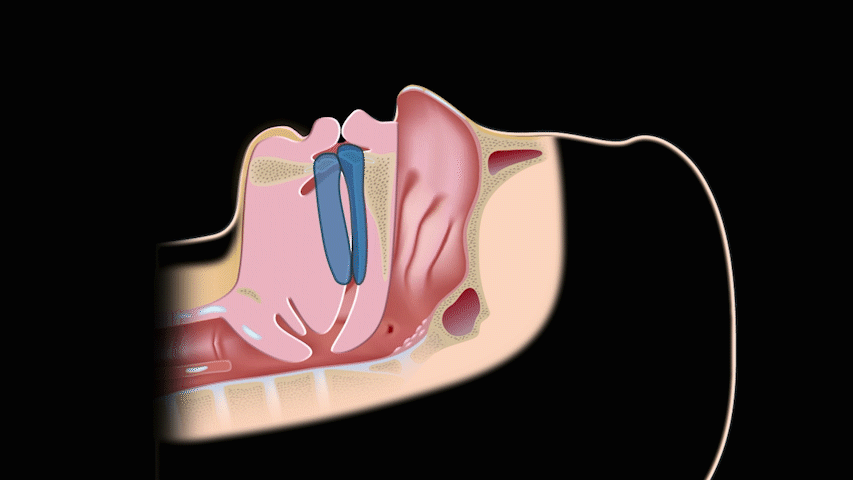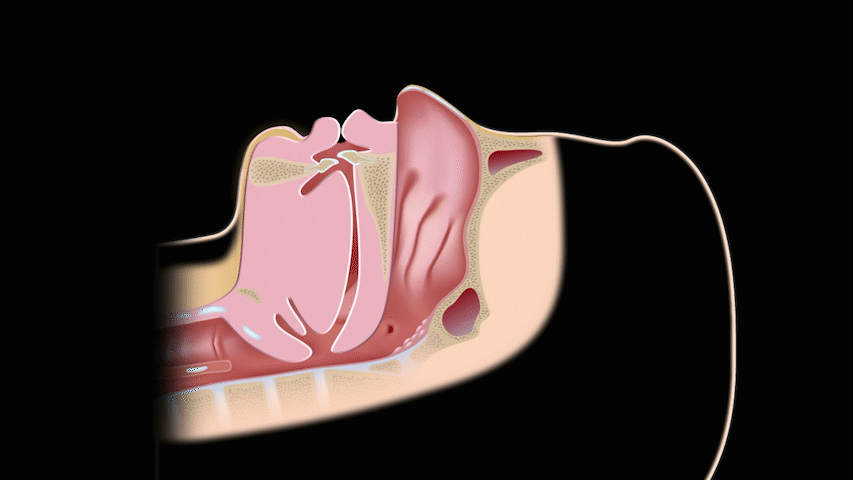Sleep Apnea
Sleep Apnea is a serious medical condition characterized by periodic breathing interruptions throughout the sleep cycle.

The most common form is Obstructive Sleep Apnea (OSA), which is caused by collapsed tissues in the throat obstructing the airway. This causes the body to partially awaken to resume breathing. Severe cases can result in hundreds of awakenings each night. These interruptions to the sleep cycle prevent truly restful sleep, causing symptoms like snoring, waking up tired, headaches in the morning and daytime sleepiness.

Obstructive Sleep Apnea
- Pauses in breathing typically last 10 seconds
- Severe cases may last up to 30 seconds
- Loud snoring may be a sign of sleep apnea
- Pauses can recur throughout the sleep cycle
- May result in frequent awakenings and sleep fragmentation
As many as 60 million Americans could be living with undiagnosed OSA and not even know it.
An estimated 1 in 5 adults suffer from mild to moderate OSA and 1 in 15 from moderate to severe OSA*. As many as 80% of these cases are undiagnosed and unaware of their condition. Awareness of OSA and access to treatment is a widespread public health problem, one with potentially life threatening consequences for millions of Americans. For these reasons it is crucial that anyone experiencing symptoms be screened and tested for OSA. Intervening early can prevent progression of the disease and improve overall health, reducing other problems.
OSA can leave you feeling tired all day, cause fatigued driving and lower your productivity, but these are not the only dangers. Left untreated, OSA puts added stress on the body and immune system. Chronic lack of sleep can exacerbate existing conditions, increasing the likelihood of adverse events. Research findings report that Sleep apnea is commonly associated with other serious medical conditions like heart disease, diabetes and Alzheimer’s.
OSA is associated with other serious medical conditions:
- Obesity
- Alzheimer’s disease
- Diabetes
- Hypertension
- Heart-failure
- Depression
- Stroke
- Depression
- Acid Reflux
- Coronary Artery Disease
- ADHD
Symptoms of Obstructive Sleep Apnea (OSA):
- Snoring
- Forgetfulness
- Headaches in the morning
- Gasping for Air
- Difficulty concentrating
- Restless sleep
- Daytime Sleepiness
- Depression
- Feeling irritable
- Night sweats
- Dry mouth or sore throat in the morning


Common Symptoms & Commorbidities of Obstructive Sleep Apnea
OSA is a widespread health problem, with potentially life-threatening consequences if left untreated. For these reasons it is crucial that anyone experiencing symptoms be screened and tested for OSA. Intervening early can prevent progression of the disease and improve overall health, reducing other problems.
*1.Young T, Skatrud J, Peppard PE. Risk factors for obstructive sleep apnea in adults. JAMA : the Journal of the American Medical Association. 2004 Apr 28;291(16):2013–2016.
